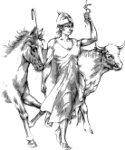Claudio Alvarenga de Oliveira
Graduado em MEDICINA VETERINÁRIA pela FMVZ-USP em 1981; Mestrado em Reprodução Animal pela FMVZ-USP em 1985; Especialização em Fisiologia da Reprodução pela Universidade de Glasgow-Escócia em 1986; Doutorado em Anatomia dos Animais Domésticos pela FMVZ-USP em 1993; Pós-Doutorado em Endocrinologia Reprodutiva Animal pela Universidade da Florida, Gainesville, EUA em 1998; Livre-Docência pela FMVZ-USP em 2001. Docente da FMVZ-USP desde 1981, Professor Titular Senior do Departamento de Reprodução Animal da FMVZ-USP desde 2019, onde ministra as disciplinas de Fisiologia da Reprodução em nível de graduação e Endocrinologia Reprodutiva Animal em nível de pós-graduação. Idealizador e fundador do LABORATÓRIO DE DOSAGENS HORMONAIS da FMVZ-USP. Tendo como principal linha de pesquisa: Endocrinologia Reprodutiva em Animais Domésticos e Selvagens, já concluiu a ORIENTAÇÃO de 21 DISSERTAÇÕES DE MESTRADO e 14 TESES DE DOUTORADO, além de 17 projetos de INICIAÇÃO CIENTÍFICA e 5 supervisões de programas de PÓS-DOUTORADO. Participou de mais de 100 bancas examinadoras, mais de 200 eventos científicos nacionais e internacionais e PUBLICOU mais de 100 TRABALHOS CIENTÍFICOS COMPLETOS EM PERÍÓDICOS INDEXADOS. Funções Administrativas: Vice-Chefe do Departamento de Reprodução Animal (VRA) da FMVZ-USP em 2001-2002 e 2007-2008; Chefe do VRA da FMVZ-USP em 2003-2004 e 2009; Coordenador do Programa de Pós-Graduação em Reprodução Animal da FMVZ-USP em 2002-2007; Vice-Presidente da Comissão de Pós-Graduação da FMVZ-USP em 2004-2007. Representante da Congregação da FMVZ-USP junto ao Conselho Universitário da USP mandato 2018-2019. Coordena diversos projetos de pesquisa financiados pela FAPESP, CNPq, CAPES e Pró-Reitoria de Pesquisa da USP. Presta serviços no Laboratório de Dosagens Hormonais ao Hospital Veterinário da FMVZ-USP e a diversas outras instituições clínicas e de pesquisa em todo o país. Áreas de interesse técnico-científico: 1) endocrinologia reprodutiva em animais domésticos e selvagens; 2) extração e quantificação de hormônios nas fezes e urina; 3) fatores endócrinos em biotecnologia da reprodução; 4) desreguladores endócrinos; 5) farmacologia e toxicologia da reprodução; 6) nutrição e reprodução
Graduated in VETERINARY MEDICINE at FMVZ-USP in 1981; Master’s Degree in Animal Reproduction from FMVZ-USP in 1985; Specialization in Reproductive Physiology from the University of Glasgow-Scotland in 1986; Doctorate in Domestic Animal Anatomy from FMVZ-USP in 1993; Post-Doctorate in Animal Reproductive Endocrinology at the University of Florida, Gainesville, USA in 1998; Associate Professor at FMVZ-USP in 2001. Professor at FMVZ-USP since 1981, Senior Professor at the Department of Animal Reproduction at FMVZ-USP since 2019, where he teaches the disciplines of Reproductive Physiology at the undergraduate level and Animal Reproductive Endocrinology in graduate level. Creator and founder of the FMVZ-USP HORMONAL DOSAGE LABORATORY. Having as main line of research: Reproductive Endocrinology in Domestic and Wild Animals, he has already completed the SUPERVISION of 21 MASTER’S DISSERTATIONS and 14 DOCTORATE THESIS, in addition to 17 SCIENTIFIC INITIATION projects and 5 POST-DOCTORATE program supervisions. He participated in more than 100 examining boards, more than 200 national and international scientific events and PUBLISHED more than 100 COMPLETE SCIENTIFIC PAPERS IN INDEXED JOURNALS. Administrative Functions: Deputy Head of the Animal Reproduction Department (VRA) at FMVZ-USP in 2001-2002 and 2007-2008; Head of the VRA at FMVZ-USP in 2003-2004 and 2009; Coordinator of the Postgraduate Program in Animal Reproduction at FMVZ-USP in 2002-2007; Vice-President of the Post-Graduate Committee at FMVZ-USP in 2004-2007. Representative of the FMVZ-USP Congregation at the USP University Council mandate 2018-2019. Coordinates several research projects funded by FAPESP, CNPq, CAPES and the Dean of Research at USP. It provides services in the Hormonal Dosing Laboratory to the Veterinary Hospital of FMVZ-USP and to several other clinical and research institutions across the country. Areas of technical-scientific interest: 1) reproductive endocrinology in domestic and wild animals; 2) extraction and quantification of hormones in feces and urine; 3) endocrine factors in reproductive biotechnology; 4) endocrine disruptors; 5) pharmacology and toxicology of reproduction; 6) nutrition and reproduction
